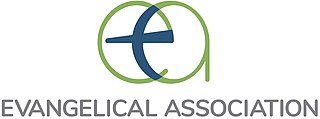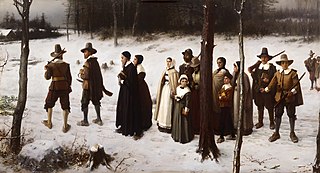Called to Common Mission (CCM) is an agreement between The Episcopal Church (ECUSA) and the Evangelical Lutheran Church in America (ELCA) in the United States, establishing full communion between them. It was ratified by the ELCA in 1999, the ECUSA in 2000, after the narrow failure of a previous agreement. Its principal author on the Episcopal side was theological professor J. Robert Wright. Under the agreement, they recognize the validity of each other's baptisms and ordinations. The agreement provided that the ELCA would accept the historical episcopate and the "threefold ministry" of bishop - priest - deacon with respect to ministers of communicant churches serving ELCA congregations; the installation of the ELCA presiding bishop was performed through the laying on of hands by Lutheran bishops in the historic episcopate. This provision was opposed by some in the ELCA, which after its founding merger in 1988, held a lengthy study of the ministry which was undertaken with divided opinions. In response to concerns about the meaning of the CCM, synod bishops in the ELCA drafted the Tucson resolution which presented the official ELCA position. It made clear that there is no requirement to ordain deacons or accept their ministry. It also provided assurance that the ELCA did not and was not required by CCM to change its own theological stance.
The Evangelical Lutheran Church in America (ELCA) is a mainline Protestant Lutheran church headquartered in Chicago, Illinois. The ELCA was officially formed on January 1, 1988, by the merging of three Lutheran church bodies. As of 2022, it has approximately 2.9 million baptized members in 8,640 congregations.
The Confessing Movement is a largely lay-led theologically conservative Christian movement that opposes the influence of theological liberalism and theological progressivism currently within several mainline Protestant denominations and seeks to return them to its view of orthodox doctrine, or form a new denomination and disfellowship (excommunicate) them if the situation becomes untenable. Those who eventually deem dealing with theological liberalism and theological progressivism within their churches and denominations as not being tenable anymore would later join or start Confessional Churches and/or Evangelical Churches that continue with the traditions of their respective denominations and maintaining orthodox doctrine while being ecclesiastically separate from the Mainline Protestant denominations.

The Evangelical Lutheran Church in Canada is Canada's largest Lutheran denomination, with 95,000 baptized members in 519 congregations, with the second largest, the Lutheran Church–Canada, having 47,607 baptized members. Together with the LCC and the Canadian Association of Lutheran Congregations, it is one of only three all-Canadian Lutheran denominations. It is a member of the Lutheran World Federation, the Canadian Council of Churches, the World Council of Churches, and the Anglican-Lutheran North American grouping Churches Beyond Borders. According to the 2021 Canadian census, a larger number of 328,045 adherents identify as Lutheran.
Confessional Lutheranism is a name used by Lutherans to designate those who believe in the doctrines taught in the Book of Concord of 1580 in their entirety. Confessional Lutherans maintain that faithfulness to the Book of Concord, which is a summary of the teachings found in Scripture, requires attention to how that faith is actually being preached, taught, and put into practice. Confessional Lutherans believe that this is a vital part of their identity as Lutherans.
WordAlone is a network of congregations and individuals originating within the Evangelical Lutheran Church in America (ELCA), the largest Lutheran denomination in the United States. Some congregations are still members of the denomination, but many churches have left and or joined other denominations such as Lutheran Congregations in Mission for Christ. According to its website, WordAlone advocates reform and renewal of the church, representative governance, theological integrity, and freedom from a mandated historic episcopate. The group is generally considered theologically and socially conservative. As of 2005, approximately 215 congregations have officially joined the organization.

Lutheran Congregations in Mission for Christ (LCMC) is an association of Lutheran congregations located primarily in the United States. It describes itself as an affiliation of autonomous Lutheran churches and not a denomination. It began in 2001 in response to some liberal views of the Evangelical Lutheran Church in America (ELCA). LCMC is characterized by the stances it takes on Lutheran polity, biblical authority, and human sexuality. The group describes itself as "centrist" or "mainstream", noting that it stands between the more liberal ELCA and the more conservative Lutheran Church–Missouri Synod (LCMS) and other Lutheran church bodies in North America.
Solid Rock Lutherans was a Minnesota-based group of Lutheran clergy and laity within the Evangelical Lutheran Church in America (ELCA) who opposed liberalizing that church's position on the ordination of non-celibate gay and lesbian persons on the basis of scriptural authority.

The term Evangelical Catholic is used in Lutheranism, alongside the terms Augsburg Catholic or Augustana Catholic, with those calling themselves Evangelical Catholic Lutherans or Lutherans of Evangelical Catholic churchmanship stressing the catholicity of historic Lutheranism in liturgy, beliefs, practices, and doctrines. Evangelical Catholics teach that Lutheranism at its core "is deeply and fundamentally catholic". The majority of Evangelical Catholic Lutheran clergy and parishes are members of mainstream Lutheran denominations.
The Divine Service is a title given to the Eucharistic liturgy as used in the various Lutheran churches. It has its roots in the Pre-Tridentine Mass as revised by Martin Luther in his Formula missae of 1523 and his Deutsche Messe of 1526. It was further developed through the Kirchenordnungen of the sixteenth and seventeenth centuries that followed in Luther's tradition.
Lutheran viewpoints concerning homosexuality are diverse because there is no one worldwide body which represents all Lutherans. The Lutheran World Federation, a worldwide 'communion of churches' and the largest global body of Lutherans, contains member churches on both sides of the issue. However, other Lutherans, including the Confessional Evangelical Lutheran Conference and International Lutheran Council, completely reject homosexuality.

The Evangelical Association of Reformed and Congregational Christian Churches is an evangelical protestant denomination in the United States. It began as a fellowship of churches disaffected from the United Church of Christ due to that denomination's liberal theology. Churches of the Evangelical Association are free to hold dual affiliation with another denomination, as local churches observe congregational polity.
Lutheranism is a major branch of Protestantism, identifying primarily with the theology of Martin Luther, the 16th-century German monk and reformer whose efforts to reform the theology and practices of the Catholic Church launched the Protestant Reformation.
The 2009 ELCA Churchwide Assembly was the eleventh biennial Churchwide Assembly of the Evangelical Lutheran Church in America. It convened in the city of Minneapolis, Minnesota, from August 17–23, 2009. The Churchwide Assembly is the 'highest legislative authority' of the ELCA.

The North American Lutheran Church (NALC) is a Lutheran denomination with over 420 congregations in the United States, Canada, and Mexico, counting more than 142,000 baptized members. The NALC believes all doctrines should and must be judged by the teaching of the Christian Scriptures, in keeping with the historic Lutheran Confessions. It was established on August 27, 2010. The group describes itself as embodying the "theological center of Lutheranism in North America," noting that it stands between the more liberal Evangelical Lutheran Church in America (ELCA) and the more conservative Lutheran Church–Missouri Synod (LCMS) and other Lutheran church bodies in North America, "firmly within the global Lutheran mainstream".

Protestantism is the largest grouping of Christians in the United States, with its combined denominations collectively comprising about 43% of the country's population in 2019. Other estimates suggest that 48.5% of the U.S. population is Protestant. Simultaneously, this corresponds to around 20% of the world's total Protestant population. The U.S. contains the largest Protestant population of any country in the world. Baptists comprise about one-third of American Protestants. The Southern Baptist Convention is the largest single Protestant denomination in the U.S., comprising one-tenth of American Protestants. Twelve of the original Thirteen Colonies were Protestant, with only Maryland having a sizable Catholic population due to Lord Baltimore's religious tolerance.
A Formula of Agreement is an ecclesiastical agreement between Reformed churches and the Evangelical Lutheran Church in America, establishing full communion with each other.

The General Lutheran Church, Inc. (GLC) is a small Lutheran denomination organized on March 9, 2014, and incorporated in the state of Indiana on October 26, 2017. The address of incorporation passed to Puerto Rico when the church changed leadership. It was founded when ministers of several Lutheran church bodies who objected to various positions held in their respective churches, specifically regarding atonement, women's ordination, worship styles, and the Lutheran Confessions, met to discuss these and other issues of concern. This meeting led to the establishment of the General Lutheran Church and to its endorsement of universal salvation, women's ordination, and flexibility with regards to liturgical matters. The church claims to be a successor to the former Evangelical Lutheran General Synod of the United States of America.

The Institute of Lutheran Theology is a private Lutheran seminary in Brookings, South Dakota. It provides distance education online and at its campus in Brookings.

The Augsburg Lutheran Churches is a moderate-to-conservative confessional Lutheran denomination in the United States.







